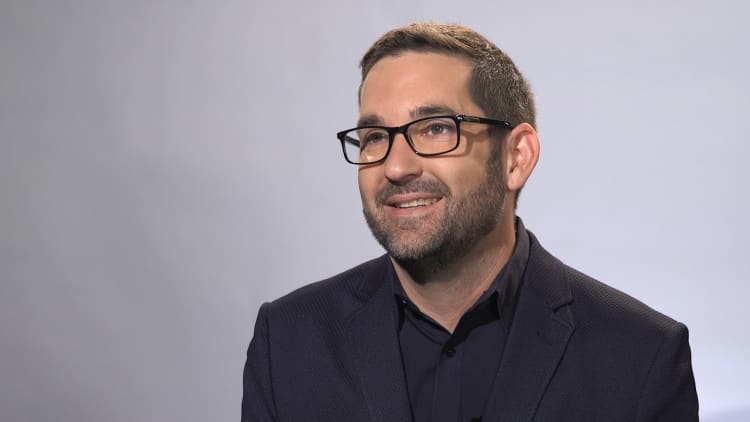With health care more critical than ever these days, it should come as no surprise that 2 out of the 3 best jobs in the U.S. are in that field.
Like many industries, the health-care sector has been hit by the Covid crisis, with employment down by 542,000 since February. Yet, 42 of the 100 best jobs compiled by U.S. News & World Report are health-care or health-care support roles. One of the criteria is the projected job growth for the roles.
So what does it take to land one of these jobs, and if you do — what do the roles actually entail? Here's a look at the top three.
1. Physician assistant
- Median salary: $112,260
The job is similar to that of a general internist and, in most states, a physician assistant has to collaborate with a licensed surgeon or physician.
"PAs diagnose illnesses, develop and manage treatment plans, prescribe medication and serve as patients' principal health-care provider," said Beth R. Smolko, president the American Academy of PAs.
They work in medical offices, community health centers, educational facilities and correctional institutions.
You'll need a master's degree. Admission is highly competitive, and prerequisite courses in basic and behavioral sciences are required.
In addition, you'll need some health-care experience, such as being an EMT or paramedic, said Smolko, who worked for several years as a PA in family and internal medicine. She is now program director and department chair for Frostburg State University's PA Medicine Program in Maryland.

Once in school, expect classroom instruction and more than 2,000 hours of clinical education. It's that experience on rotation that can help you snag a job. About 75% of students, pre-pandemic, received at least two to three offers prior to graduation, Smolko said.
Employment in the field is expected to grow 31% between 2019 and 2029 — much faster than the average for all occupations, according to the Bureau of Labor Statistics.
2. Software developer
- Median salary: $107,510
A software developer creates applications that run on computers or other devices. They can do anything from writing new code to maintaining existing platforms.
A bachelor's degree isn't required: Only 46% of software developers have a bachelor's, according to a 2018 survey by Stack Overflow, an online community for developers. About 25% have a master's, and 27% don't have any degree.
If you want to skip college, you can go to a boot camp to get a coding and software education.
More from Invest in You:
15 hottest careers for freelancers in 2021
How to boost your income and find creative ways to make money
Plan out your success before launching your side hustle
Once you have gained the skills, show them off in your portfolio, which is a must-have on job interviews. Create a website that looks professional and has links to your projects, says software developer Andy Sterkowitz, who is also a career coach for those looking to enter the field.
"Companies are willing to hire people with no experience and no degree," said Sterkowitz, landed his first job at a small company after teaching himself to code.
"There is a lot of demand," he added. "The best thing you can do is prove that you can do this with your actual work."
Employment in the field is expected to grow 22% from 2019 to 2029, according to the BLS.
3. Nurse practitioner
- Median Salary: $109,820
Nurse practitioners perform physical exams, prescribe medicines and authorize treatments, among other duties. They largely work in primary care, but can also specialize in orthopedics, pulmonology and other areas.
"We really focus on wellness and illness prevention, as well as a deep dive into patient education," said Sophia L. Thomas, who practices at a community health center in New Orleans. She is also president of the American Association of Nurse Practitioners.
Less than half of U.S. states allow nurse practitioners to practice with full authority, without having to be connected to a physician.
To become a nurse practitioner, you'll first have to be a registered nurse. That means you'll already have a bachelor's of science degree in nursing and have an RN license.

Most nurse practitioners spend about 10 years as an RN before going to graduate school for their required master's, Thomas said.
Her advice: Shadow a nurse practitioner to really get an understanding of what they do. Research the programs and different requirements needed. When you enter graduate school, you'll already need to know your area of practice. Many find jobs through their clinical rotations, others through word of month and recruiters, Thomas said.
Overall employment of nurse practitioners, nurse anesthetists and nurse midwives is projected to grow 45% from 2019 to 2029, according to the BLS.
SIGN UP: Money 101 is an 8-week learning course to financial freedom, delivered weekly to your inbox.
CHECK OUT: I started investing $50 a month when I was 19: Now I'm working toward saving $1 million via Grow with Acorns+CNBC.
Disclosure: NBCUniversal and Comcast Ventures are investors in Acorns.






